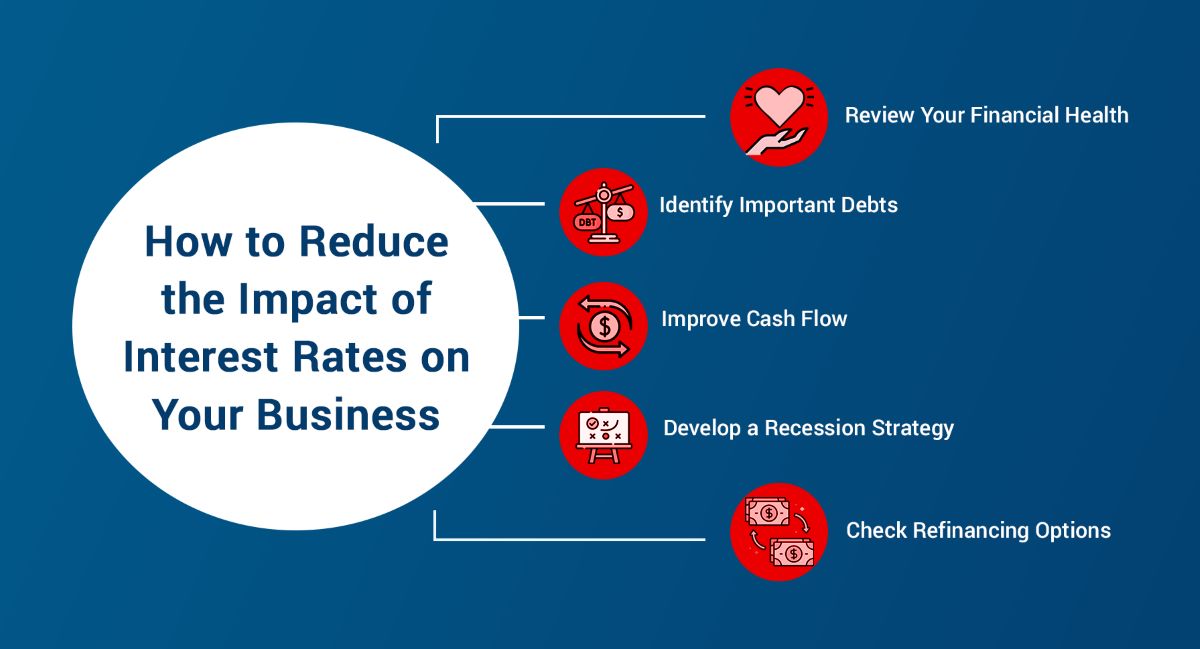

Finance
How To Avoid Credit Card Merchant Fees
Published: February 24, 2024
Learn how to minimize credit card merchant fees and save money with our expert finance tips and strategies. Take control of your business expenses today!
(Many of the links in this article redirect to a specific reviewed product. Your purchase of these products through affiliate links helps to generate commission for LiveWell, at no extra cost. Learn more)
Table of Contents
**
Introduction
**
Welcome to the world of credit card merchant fees! If you're a business owner, you're probably familiar with the sting of paying fees every time a customer swipes a credit card. These fees, charged by payment processors for processing credit and debit card transactions, can eat into your profits and impact your bottom line.
Understanding how credit card merchant fees work and knowing how to navigate the complex landscape of payment processing can make a significant difference in the financial health of your business. In this article, we'll delve into the intricacies of credit card merchant fees and explore practical tips for minimizing these expenses.
As we embark on this journey, it's essential to recognize that the world of credit card processing is multifaceted and ever-evolving. From interchange fees to assessment fees, understanding the different components of merchant fees is crucial for making informed decisions about your payment processing strategies.
So, whether you're a seasoned entrepreneur or just starting your business venture, join us as we unravel the mysteries of credit card merchant fees and discover effective ways to mitigate their impact on your business. Let's dive in and empower you with the knowledge and strategies needed to navigate the world of payment processing with confidence and savvy decision-making.
**
Understanding Credit Card Merchant Fees
**
Before delving into strategies for avoiding credit card merchant fees, it’s crucial to grasp the fundamental components of these fees. Credit card merchant fees encompass various charges imposed by payment processors for facilitating credit and debit card transactions. These fees typically consist of interchange fees, assessment fees, and payment processor charges.
Interchange fees, set by card networks such as Visa and Mastercard, represent a percentage of the transaction value plus a flat fee. These fees are paid by the merchant’s bank to the cardholder’s bank as compensation for the transaction and the risk involved.
Assessment fees, also determined by the card networks, are additional charges that contribute to the overall merchant fee. These fees are collected by the card networks for providing access to their payment infrastructure and maintaining the integrity and security of the payment ecosystem.
Payment processor charges, imposed by the company that handles the actual processing of credit card transactions, encompass various fees, including transaction fees, monthly fees, and incidental charges. These fees vary among payment processors and can significantly impact a business’s overall cost of accepting credit card payments.
Understanding the intricacies of credit card merchant fees is pivotal for devising effective cost-saving strategies. By gaining insight into the underlying components of these fees, businesses can employ targeted approaches to minimize their impact and optimize their payment processing expenses.
As we proceed, we’ll explore actionable tips and best practices for mitigating credit card merchant fees, empowering businesses to navigate the realm of payment processing with financial prudence and strategic acumen.
**
Tips for Avoiding Credit Card Merchant Fees
**
As a business owner, the quest to minimize credit card merchant fees is a perpetual endeavor. While these fees are an inevitable aspect of accepting card payments, implementing strategic measures can help mitigate their impact and optimize your bottom line. Here are actionable tips for avoiding credit card merchant fees:
- Leverage Cash Discount Programs: Consider implementing a cash discount program, wherein customers paying with cash receive a discount, effectively incentivizing cash transactions and reducing the volume of credit card payments.
- Set Minimum Purchase Amounts: Establishing a minimum purchase amount for credit card transactions can help mitigate the impact of small-ticket transactions, as the associated fees may outweigh the revenue generated.
- Explore Surcharge Options: Depending on the legal regulations in your jurisdiction, you may have the option to impose surcharges on credit card transactions, thereby passing on the processing fees to customers who choose to pay with cards.
- Opt for Flat-Rate Processing: Some payment processors offer flat-rate processing, where a consistent percentage fee is applied to all transactions, regardless of card type. This simplified fee structure can provide predictability and potentially lower costs for businesses.
- Implement Dynamic Currency Conversion (DCC): For businesses that cater to international customers, offering DCC can enable you to receive payments in your local currency, potentially reducing foreign transaction fees and currency conversion costs.
- Encourage ACH and E-Check Payments: Promote the use of ACH (Automated Clearing House) and e-check payments for recurring transactions, as these methods often entail lower processing fees compared to credit and debit card payments.
- Monitor Chargebacks and Fraud Prevention: Vigilant monitoring of chargebacks and implementing robust fraud prevention measures can help mitigate the financial repercussions of disputed transactions and fraudulent activities.
By strategically leveraging these tips and exploring tailored approaches based on your business’s unique needs and customer base, you can proactively mitigate the impact of credit card merchant fees and optimize your payment processing strategies.
**
Choosing the Right Payment Processor
**
When it comes to minimizing credit card merchant fees, selecting the right payment processor is a pivotal decision for businesses. The payment processor serves as a crucial intermediary in facilitating card transactions and plays a significant role in determining the associated fees and service quality. Here are essential considerations for choosing the right payment processor:
- Fee Structure Transparency: Opt for a payment processor that provides transparent and comprehensible fee structures, enabling you to clearly discern the various charges and make informed decisions regarding your payment processing expenses.
- Competitive Processing Rates: Compare the processing rates offered by different payment processors, taking into account factors such as interchange fees, assessment fees, and the processor’s markup. Look for competitive rates that align with your business’s transaction volume and average ticket size.
- Service Reliability and Security: Prioritize payment processors with a proven track record of reliability, security, and robust fraud prevention measures. Ensuring the safety and integrity of card transactions is paramount for both your business and your customers.
- Compatibility with Your Business Model: Choose a payment processor that aligns with your business model and operational needs. Whether you operate an e-commerce platform, a brick-and-mortar store, or a mobile business, selecting a processor that caters to your specific requirements is essential for seamless integration and functionality.
- Support for Emerging Payment Technologies: In the rapidly evolving landscape of payment technologies, opt for a processor that supports innovative payment methods such as mobile wallets, contactless payments, and EMV chip cards. Embracing these advancements can enhance the customer experience and future-proof your payment infrastructure.
- Responsive Customer Support: Assess the quality of customer support provided by potential payment processors. Responsive and knowledgeable support can be invaluable in addressing technical issues, resolving disputes, and navigating the intricacies of payment processing.
By conscientiously evaluating these factors and conducting thorough research on prospective payment processors, businesses can make informed decisions that align with their financial objectives and operational requirements. Choosing the right payment processor lays the foundation for effective fee management and optimal payment processing efficiency.
**
Negotiating with Payment Processors
**
Engaging in strategic negotiations with payment processors can yield substantial benefits for businesses seeking to minimize credit card merchant fees. While the fee structures and terms initially presented by processors may seem non-negotiable, businesses have the opportunity to advocate for favorable arrangements through informed negotiation tactics. Here are key strategies for negotiating with payment processors:
- Understand Your Leverage: Knowledge is power in negotiations. Educate yourself about prevailing processing rates, industry standards, and the specific needs of your business. Armed with this information, you can confidently articulate your requirements and leverage competitive offers from other processors.
- Seek Customized Solutions: Rather than settling for standard packages, express your interest in tailored solutions that align with your transaction volume, average ticket size, and industry-specific considerations. Customized pricing and service arrangements can optimize cost-efficiency and accommodate your unique business dynamics.
- Emphasize Long-Term Partnership: Position the negotiation as a collaborative effort to establish a mutually beneficial, long-term partnership. Highlight your commitment to fostering a productive relationship and express openness to exploring value-added services and incentives that contribute to the processor’s success.
- Request Fee Reductions and Waivers: Inquire about the potential for fee reductions, waivers, or incentives based on factors such as transaction volume, processing consistency, or the inclusion of additional services. Processors may be willing to accommodate these requests to secure and retain your business.
- Clarify Contract Terms and Flexibility: Thoroughly review the contract terms and seek clarity on potential areas of flexibility, including termination fees, contract duration, and the ability to adjust pricing structures in response to changing business needs or industry developments.
- Benchmark and Counteroffer: Utilize competitive offers and industry benchmarks as leverage to negotiate more favorable terms. If a processor presents a proposal, consider countering with well-reasoned adjustments based on your research and comparative assessments.
By approaching negotiations with a strategic mindset, thorough preparation, and a clear understanding of your business’s value proposition, you can effectively advocate for advantageous terms and foster a collaborative partnership with your chosen payment processor. Negotiation presents an opportunity to tailor your payment processing arrangements to align with your financial objectives and operational imperatives.
**
Conclusion
**
As we conclude our exploration of credit card merchant fees and the strategies for minimizing their impact, it’s evident that businesses wield a range of proactive measures to optimize their payment processing expenses. The intricate landscape of credit card merchant fees, encompassing interchange fees, assessment fees, and payment processor charges, necessitates a nuanced approach to fee management and strategic decision-making.
By implementing a multifaceted approach to fee mitigation, businesses can navigate the realm of payment processing with financial prudence and astuteness. From leveraging cash discount programs and exploring surcharge options to selecting the right payment processor and engaging in informed negotiations, businesses have the capacity to proactively manage their credit card merchant fees.
Empowered with a comprehensive understanding of credit card merchant fees and armed with actionable strategies, businesses can optimize their payment processing efficiency, enhance cost-effectiveness, and fortify their financial sustainability. The ability to navigate the complexities of credit card merchant fees equips businesses with the means to bolster their profitability and allocate resources strategically.
As the landscape of payment processing continues to evolve, businesses are poised to adapt and capitalize on emerging technologies, innovative fee structures, and collaborative partnerships with payment processors. By embracing a dynamic and informed approach to fee management, businesses can position themselves for sustained financial resilience and operational agility in an ever-changing marketplace.
Ultimately, the conscientious application of the strategies outlined in this article empowers businesses to transcend the challenges posed by credit card merchant fees and chart a course toward financial optimization and sustainable growth. With diligence, strategic acumen, and a commitment to informed decision-making, businesses can navigate the world of payment processing with confidence and resourcefulness.














